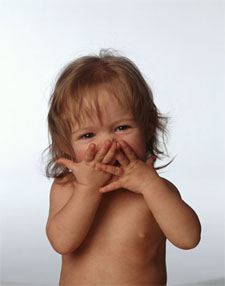Apr 25, 2024
Apr 25, 2024
 Childhood sex play is an often-misunderstood issue. Misunderstanding tends to come from adult concerns and lack of understanding. Certain forms of child sex play are to be expected, others are not.
Childhood sex play is an often-misunderstood issue. Misunderstanding tends to come from adult concerns and lack of understanding. Certain forms of child sex play are to be expected, others are not.
Typically somewhere between infants and toddlers, children become aware of their genitals and anus. As with normal childhood exploration, these body parts simply become new territory as the child’s awareness of their body naturally develops. This awareness is well developed in the preschooler as by this age the responsible adults have instructed and encouraged control of bladder and sphincter for toilet training. Touch and self-fondling of these body parts tends to be soothing to children and even pleasurable so hence a natural attraction develops with time.
The role of the parent throughout is to encourage privacy in the child such that these behaviors are not discouraged per se, but rather confined to an appropriate place and time.
As the developing child becomes aware of their body parts, they then become aware of the differences between themselves and opposite gender. By ages four and five children thus become intrigued with their sexual gender differences and engage in mutual games of exploration frequently referred to as “playing doctor”. Again when discovered by the parents, their role is to encourage privacy. We tend discourage mutual sex play at this age in favor of encouraging solitary and private play. Some, according to their own beliefs and values will also discourage any solitary play.
Some children will continue an interest in sexual play that will last through to adolescence and adulthood. Their expression of sexual interest may be muted or flourished according to opportunity for play and according to the attitudes of their parents or caregivers. Normal and healthy sex play throughout is always non-coercive, mutual and between children of similar ages.
Sexual behavior between children of different ages becomes troublesome and indicative of problems as the ages between the children becomes greater. Of concern are issues of coercion and exploitation where the behavior is no longer mutual but favors an older child gratifying him or herself over the needs and interests of the younger child. There is an element of the older child “taking advantage” of the younger child and thus even if the experience is not felt as hostile or harmful by the younger child, the elements of exploitation make the situation psychologically abusive because of the manipulation required to evoke participation or compliance in the younger child. Hence, these childhood experiences are abusive by nature and do not constitute childhood sex play. These sexual behaviors are to be discouraged and children subject to such experiences should be counseled to provide support, to explain that such behavior is not acceptable and to help them develop strategies to limit risk of further exploitation.
Sexual behavior that would be beyond the imagination of a child or may be influenced by observation of adult sexual behavior or influenced by adult sexual abuse is also of concern. Such sexual behavior would appear unnatural for a child or would be regarded as a fetish if conducted by an adult. Such behavior goes well beyond exploration and also should be discouraged. Children discovered engaging in such behavior should be spoken with and perhaps by a professional, to determine how the behavior came about and if the child was subject to adult exploitation.
Sexual development begins in infancy and carries on throughout life. During childhood, normal sexual development and play is encouraged but circumscribed or shaped by the parents. The parents help the child to learn about appropriate touch, place and time and about the concept of privacy.
Problematic sexual experiences or behavior involves exploitation or coercion, particularly between children of different ages. Between children of similar ages, if the behavior appears unnatural or beyond a child’s imagination, there is also cause for concern.
If ever a parent is uncertain, consult a social worker, child psychologist or physician.
16-Jul-2006
More by : Gary Direnfeld